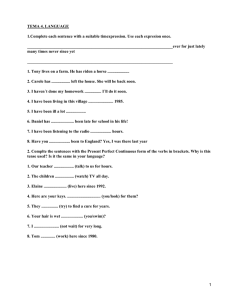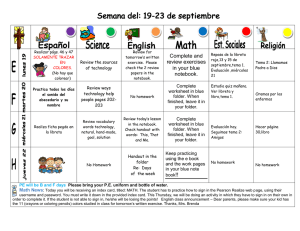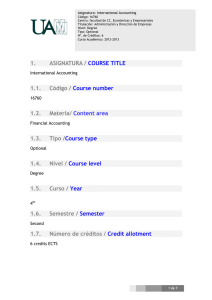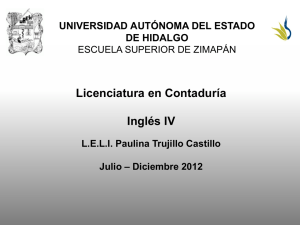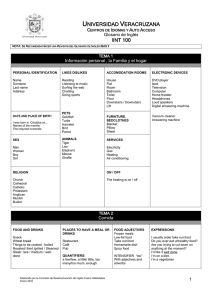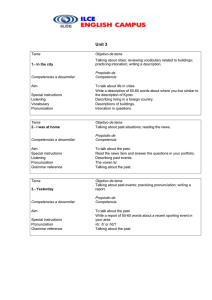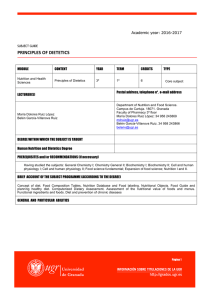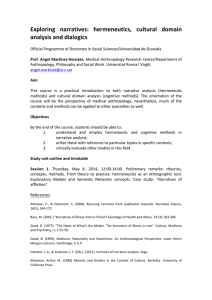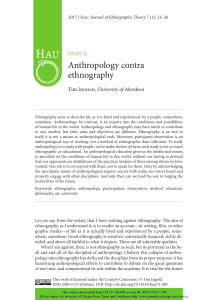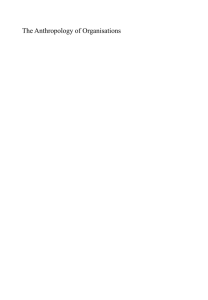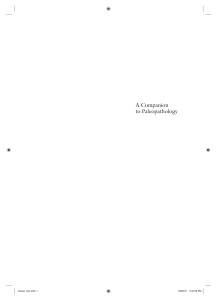WAKE FOREST IN SALAMANCA COURSE SUMMARY
Anuncio
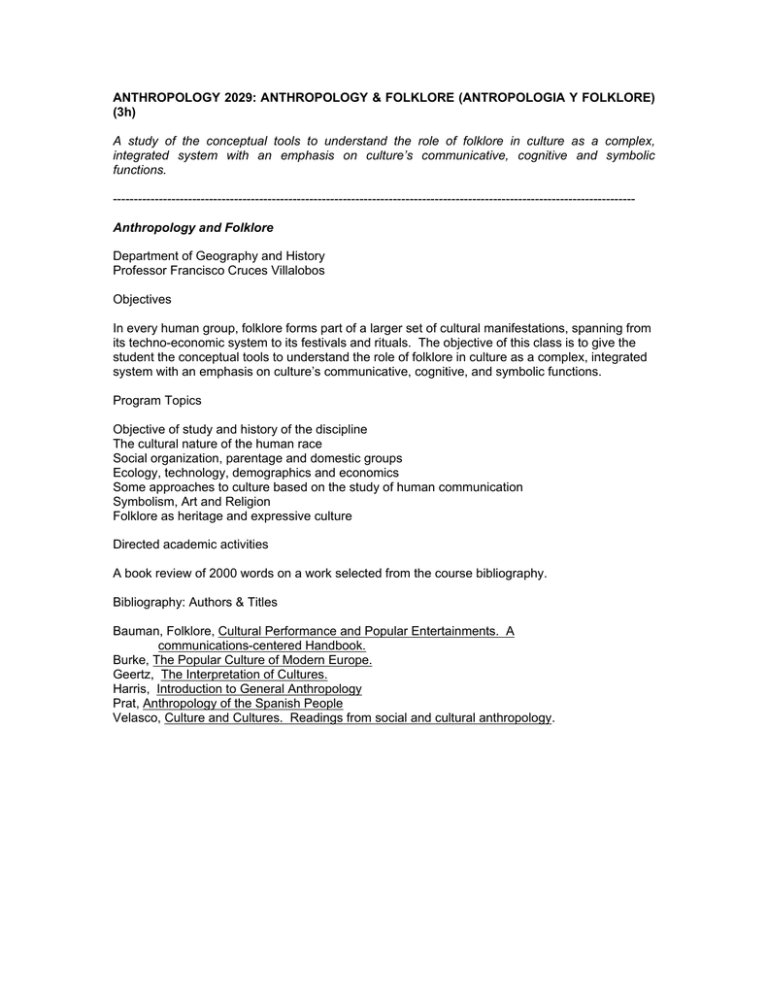
ANTHROPOLOGY 2029: ANTHROPOLOGY & FOLKLORE (ANTROPOLOGIA Y FOLKLORE) (3h) A study of the conceptual tools to understand the role of folklore in culture as a complex, integrated system with an emphasis on culture’s communicative, cognitive and symbolic functions. ----------------------------------------------------------------------------------------------------------------------------Anthropology and Folklore Department of Geography and History Professor Francisco Cruces Villalobos Objectives In every human group, folklore forms part of a larger set of cultural manifestations, spanning from its techno-economic system to its festivals and rituals. The objective of this class is to give the student the conceptual tools to understand the role of folklore in culture as a complex, integrated system with an emphasis on culture’s communicative, cognitive, and symbolic functions. Program Topics Objective of study and history of the discipline The cultural nature of the human race Social organization, parentage and domestic groups Ecology, technology, demographics and economics Some approaches to culture based on the study of human communication Symbolism, Art and Religion Folklore as heritage and expressive culture Directed academic activities A book review of 2000 words on a work selected from the course bibliography. Bibliography: Authors & Titles Bauman, Folklore, Cultural Performance and Popular Entertainments. A communications-centered Handbook. Burke, The Popular Culture of Modern Europe. Geertz, The Interpretation of Cultures. Harris, Introduction to General Anthropology Prat, Anthropology of the Spanish People Velasco, Culture and Cultures. Readings from social and cultural anthropology. ANTROPOLOGÍA Y FOLKLORE Facultad de Geografía e Historia Cuatrimestre 1º. Asignatura optativa de 2º ciclo. Créditos: 5 (2 Teóricos y 3 Prácticos) Profesor: Francisco Cruces Villalobos OBJETIVOS En todo grupo humano, la música forma parte de un conjunto más amplio de manifestaciones culturales, abarcando desde su sistema tecnoeconómico a sus fiestas y rituales. El propósito de la asignatura es facilitar al alumno herramienteas conceptuales para la comprensión de ese todo complejo, con un énfasis en las dimensiones comunicativas, cognitivas y simbólicas. PROGRAMA Tema 1. Objeto e historia de la disciplina. Tema 2. La naturaleza cultural de la especie human. Tema 3. Organización social, parentesco y grupos domésticos. Tema 4. Ecología, tecnología, demografía y economía. Tema 5. Algunos planteamientos sobre la cultura a partir del estudio de la comunicación humana. Tema 6. Simbolismo, arte y religión. Tema 7. El folklore como patrimonio y como cultura expresiva. ACTIVIDADES ACADÉMICAS DIRIGAS Realización de una recensión personal de máximo 2000 palabras sobre la lectura de un libro escogido de una bibliografía específica. BIBLIOGRAFÍA BAUMAN, R. (ed.) (1992): Folklore, Cultural Performance and Popular Entertainments. A communications-centered Handbook. New York, Oxford: Oxford University Press. BURKE, P (1991): La cultura popular en la Europa moderna. Madrid: Alianza. GEERTZ, C. (1989): La interpretación de las culturas. Barcelona: Gedisa. HARRIS, M. (1985): Introducción a la antropología general. Madrid: Alianza. PRAT, J. Et al. (eds.) (1991): Antropología de los pueblos de España. Madrid: Taurus. VELASCO, H. (comp.): La cultura y las culturas. Lecturas de antropología social y cultural. Madrid: UNED
